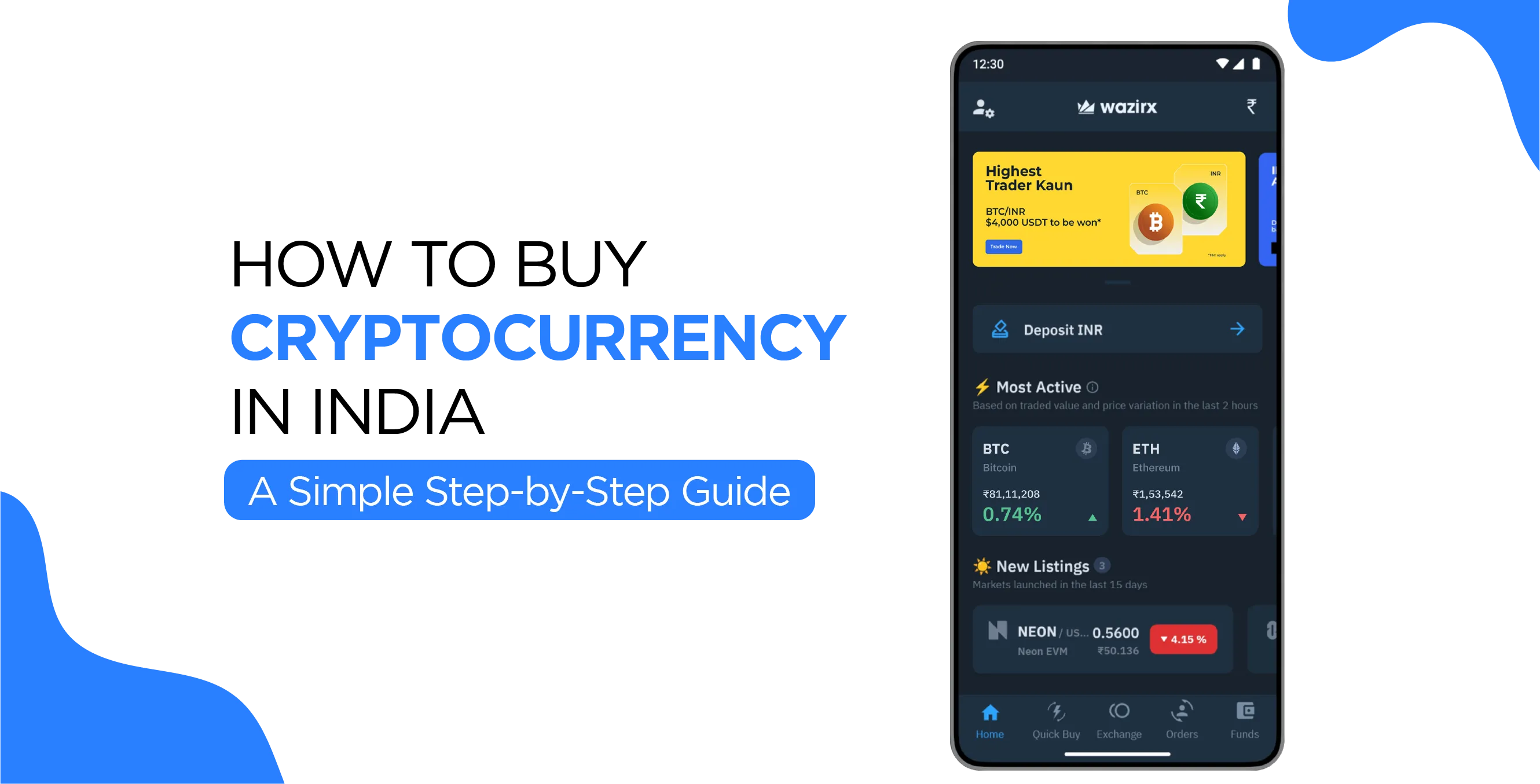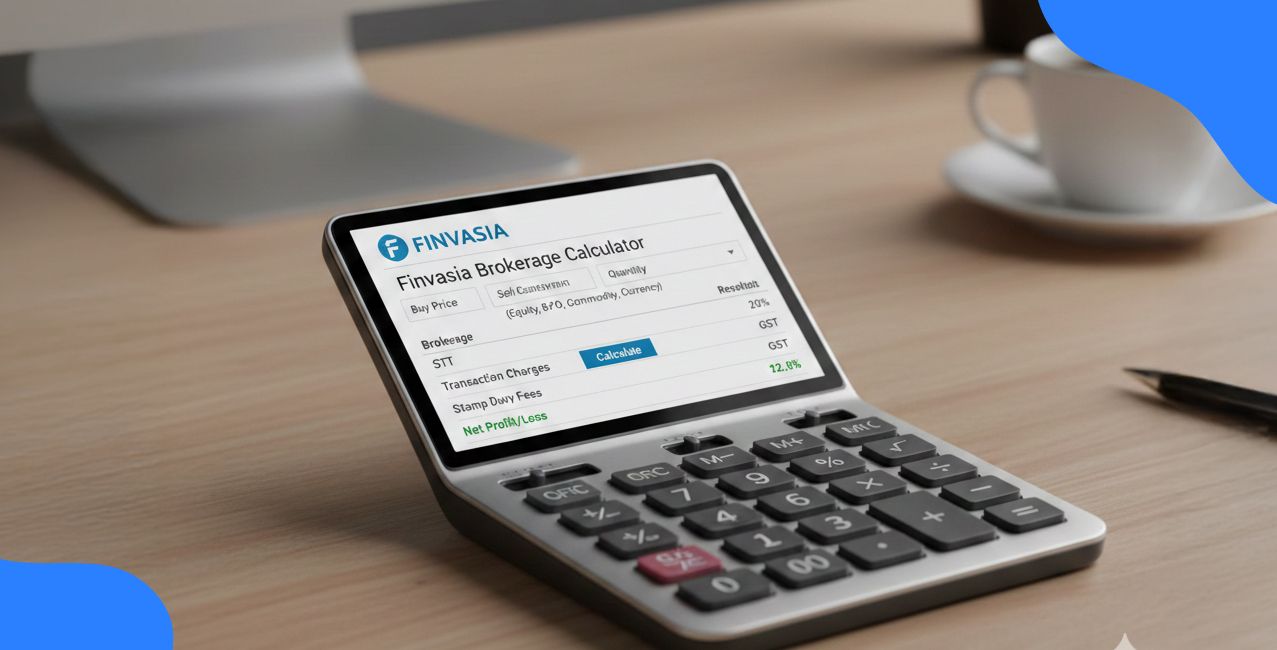How To Buy Cryptocurrency In India – A Simple Step-by-Step Guide

Check Your Loan Eligibility Now
By continuing, you agree to LoansJagat's Credit Report Terms of Use, Terms and Conditions, Privacy Policy, and authorize contact via Call, SMS, Email, or WhatsApp
For Example, back in 2023, Sahil, a 26-year-old engineer from Delhi, invested ₹1,00,000 in Ethereum (ETH) when the price was around ₹1,00,000 per ETH. By early 2025, ETH surged to ₹2,50,000, and his investment grew to ₹2.5 lakhs—a cool 150% return.
But here’s the problem: Sahil kept all his crypto in an online wallet. One day, he clicked on a fake email and lost access. Just like that, ₹50,000 worth of crypto was gone. Feels bad, right? But sadly, this happens to a lot of people.
Now, Sahil:
- Uses a cold wallet for long-term holdings.
- Keeps daily-use funds in a small hot wallet.
- Buys only from FIU-IND compliant exchanges.
- Always enable 2FA and use a password manager.
Isn’t it interesting how a few smart steps can turn a risky ride into a safe investment journey? Let’s dive into the right way to buy and secure crypto in India.
What Is Cryptocurrency?
Let’s say Riya wants to buy a digital art NFT from Arjun for 0.01 Bitcoin (BTC), worth around ₹60,000. She uses her crypto wallet, enters Arjun’s wallet address, and sends the BTC. This transaction is broadcast to the Bitcoin network.
Miners validate that Riya has enough BTC, confirm the transaction, and add it to the blockchain. Arjun receives the payment within minutes – no bank, no RBI approval, no paperwork.
Read More – Is Investing in Bitcoin Still Worth It in 2025?
Key Points:
- Decentralised: No control by Indian banks or the government.
- Digital: Only online, not physical money.
- Secure: Protected by cryptographic methods.
- Blockchain: Every transaction is permanently recorded.
- Examples: Bitcoin, Ethereum, and many more.
Legal Status of Cryptocurrency in India:
In 2024, a businessman named Amit invested ₹10,00,000 in Bitcoin. By March 2025, his portfolio had grown to ₹15,00,000. Wanting to fund a political campaign, he allegedly transferred ₹5,00,000 worth of Bitcoin anonymously to an overseas wallet without declaring it in his tax returns.
This raised red flags. Under India’s Prevention of Money Laundering Act (PMLA), undeclared crypto transactions, especially international ones, can be treated as financial crimes. In the alleged cases of politicians Nana Patole and Supriya Sule, such activity is under investigation for possibly funding election campaigns through illegal crypto channels.
Key Takeaways:
- Cryptos are not illegal, but they are not legal tender either.
- Crypto trading is allowed, but it must be declared in tax returns.
- 30% capital gains tax applies to profits.
- 1% TDS is deducted on every sale.
- Undeclared foreign transfers may fall under PMLA, triggering legal action.
- Supreme Court ruling in 2020 lifted the RBI’s banking ban but didn’t legalise cryptos fully.
- Regulations are in progress, with the government working on a new framework.
Aspect | Details |
Legal Status | Not illegal, not legal tender |
RBI Position | Cautious, only supports Digital Rupee |
Tax on Gains | 30% flat on profits |
TDS | 1% on every crypto sale |
PMLA Applicability | Yes, on undeclared/overseas crypto transactions |
Supreme Court Ruling (2020) | Allowed crypto trading, struck down banking ban |
Regulation Status | Draft policy underway by inter-ministerial group |
Risk Factors | Volatility, scams, legal grey areas |
How To Choose The Right Crypto Exchange?
Let’s say Ravindra Das, a 28-year-old IT professional from Pune, wanted to invest ₹1,50,000 in Bitcoin. He signed up on an offshore crypto exchange offering slightly lower fees. But when the Indian government blocked the platform for non-compliance with FIU-IND norms, Ravi couldn’t withdraw his ₹1,80,000 (after gains).
Frustrated, he later switched to a registered Indian exchange like CoinDCX, which offered INR on-ramp, strong KYC, and quick withdrawals. He realised secure platforms with Proof of Reserves, high liquidity, and compliance were essential for safe trading.
Key Points to Consider When Choosing a Crypto Exchange:
- Regulatory Compliance: Choose FIU-IND registered platforms.
- Liquidity & Volume: High trading volume = faster, smoother trades.
- Security & KYC: Platforms must verify identity to reduce fraud.
- On/Off Ramp: Hassle-free INR deposit & withdrawal support.
- Transparency: Proof of Reserves builds trust.
- Token Listing Policy: Look for platforms with strict vetting processes.
- Community Engagement: Active feedback channels (Telegram, Discord).
Criteria | Why It Matters |
FIU-IND Registration | Ensures legal compliance and the safety of funds |
Trading Volume & Liquidity | Enables smooth, real-time trade execution |
KYC Procedures | Prevents fraud and illicit use |
INR On-Ramp Support | Easy buy/sell using Indian rupees |
Proof of Reserves | Verifies that exchanges hold users’ assets securely |
Token Listing Transparency | Protects investors from scams and risky tokens |
Steps to Buy Cryptocurrency in India:
- Choose a Crypto Exchange:
Select a reliable Indian platform like WazirX, CoinDCX, or CoinSwitch that is FIU-IND compliant.
- Complete KYC Verification:
Sign up using your mobile number and email. Upload PAN, Aadhaar, and bank details to complete the Know Your Customer (KYC) process.
- Add Funds to Your Account:
Link your bank account and deposit INR via UPI, net banking, or IMPS to fund your crypto wallet.
- Buy Cryptocurrencies:
Browse available tokens, choose one (e.g., Bitcoin or Ethereum), enter the amount in INR, and place a buy order.
- Store Your Assets:
Store your purchased cryptocurrencies in the exchange wallet or transfer them to a private wallet for enhanced security.
- Monitor and Manage:
Track prices, set alerts, and sell or convert assets anytime through the platform’s interface.
- Ensure Security:
Safeguard your wallet credentials, enable 2FA, and avoid suspicious links or fake exchanges.
Where to Store Your Cryptocurrency?
For Example, Sneha, a freelance designer in Mumbai, bought ₹2 lakhs worth of Bitcoin in 2023. She initially stored it in a hot wallet app for convenience. In early 2024, her hot wallet account was compromised in a phishing scam, and she lost ₹50,000 worth of crypto.
Realising the risks, she moved the remaining funds to a cold wallet (Ledger Nano S hardware wallet). Now, she uses the hot wallet for small, day-to-day trades (₹10,000 or less) and the cold wallet to store the rest securely offline.
Also Read - What is Jio Coin? Meaning, Launch Status & Cryptocurrency Insight
Key Pointers for Crypto Storage:
- Hot Wallets: Great for active trading; keep small amounts only.
- Cold Wallets: Ideal for long-term storage and large holdings.
- Paper Wallets: Offline and simple, but risky if physically damaged.
- Security Practices: Always enable 2FA and backup recovery phrases.
Wallet Type | Connectivity | Ideal Use Case | Pros | Cons |
Hot Wallet | Online | Daily use & small amounts | Easy access, user-friendly | High hacking risk |
Cold Wallet | Offline | Long-term & large storage | Very secure, full key control | Less convenient, risk of loss |
Paper Wallet | Offline | Emergency/backup storage | Simple, free, no internet needed | Easy to damage or misplace |
Exchange Wallet | Online | Quick trading on a platform | Instant access to exchange tools | Not ideal for long-term holding |
Tips For Safe Crypto Investing:
In 2021, Ramesh, a businessman from Kerala, invested ₹5,00,000 in a new cryptocurrency called Morris Coin, lured by promises of 10x returns. The project had a flashy website, a Telegram group, and a fake whitepaper.
Within months, the developers vanished, and the coin’s value dropped to ₹0, leaving 900 investors defrauded of ₹161 crores. Ramesh lost all his savings.
Lessons and Safety Tips:
- Always verify the legitimacy of a crypto project and its developers.
- Don’t fall for high-return promises or urgent investment pitches.
- Use secure, FIU-IND compliant exchanges with proper KYC.
- Enable 2FA and store private keys offline.
- Never share wallet credentials or recovery phrases.
Step | Why It Matters |
Research Before Investing | Prevents falling for scams or fake tokens |
Use 2FA & Password Tools | Adds extra layers of account protection |
Use Cold Wallets | Keeps large amounts offline and secure |
Watch for Red Flags | Avoids common scams like rug pulls and phishing |
Educate Yourself | Informed investors are less likely to be defrauded |
Conclusion:
Buying crypto in India is simple, but you must be careful. Use trusted apps, finish your KYC, and store most of your money in a cold wallet. Keep a small amount in a hot wallet for quick use. Always turn on 2FA, never share your
passwords, and don’t trust big promises. Be smart, stay safe, that’s how you win in the crypto world!
FAQs:
Q1: Is buying cryptocurrency legal in India?
Buying crypto is legal, but not accepted as legal money.
Q2: How do I begin to purchase cryptocurrency in India?
Register on an FIU-IND-listed exchange, go through KYC, fund your account, and begin purchasing.
Q3: What is the best way to keep my crypto safe?
Use a cold wallet for high sums and a hot wallet only for small amounts used daily.
Q4: Do I have to pay tax on crypto gains?
Yes, there is a 30% on profits and 1% TDS on all sales.
Q5: How do I prevent crypto scams?
Invest thoroughly, use 2FA, don't fall for too-good-to-be-true deals, and never give out wallet details.
How to Guides – Investing, Trading & Wealth Building | ||
About the author

LoansJagat Team
Contributor‘Simplify Finance for Everyone.’ This is the common goal of our team, as we try to explain any topic with relatable examples. From personal to business finance, managing EMIs to becoming debt-free, we do extensive research on each and every parameter, so you don’t have to. Scroll up and have a look at what 15+ years of experience in the BFSI sector looks like.
Subscribe Now
Related Blog Post
Recent Blogs
All Topics
Contents
Quick Apply Loan
Consolidate your debts into one easy EMI.
Takes less than 2 minutes. No paperwork.
10 Lakhs+
Trusted Customers
2000 Cr+
Loans Disbursed
4.7/5
Google Reviews
20+
Banks & NBFCs Offers
Other services mentioned in this article








